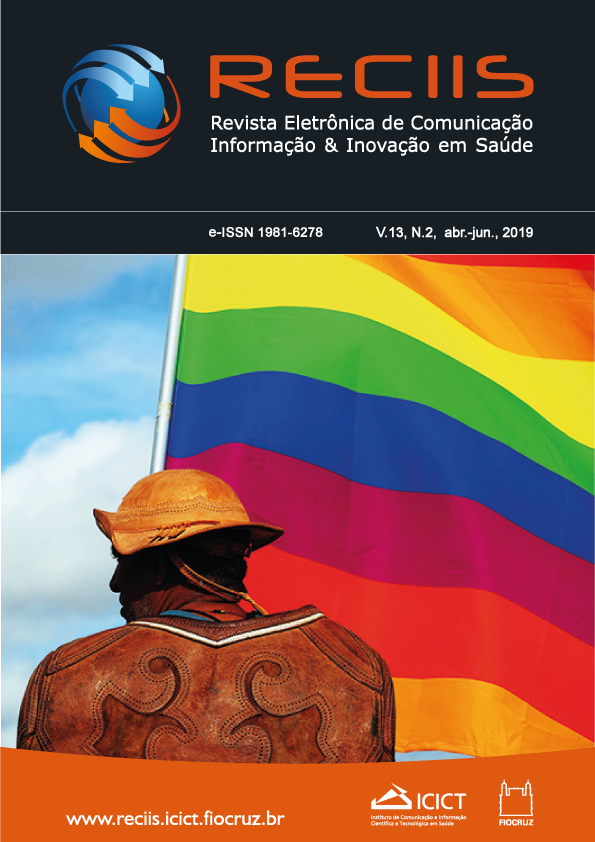Mayer-Rokitansky-Küster-Hauser syndrome: stigma, body, mass media and bioethics
DOI:
https://doi.org/10.29397/reciis.v13i2.1484Keywords:
Mayer-Rokitansky-Kuster-Hauser syndrome, Stigma, Body, Media, Bioethics.Abstract
This article bases on a study to identify and understand the construction of social stigma related to Mayer-Rokitansky-Kuster-Hauser (MRKH) Syndrome, a condition that exclusively affects women, in 43 electronically transmitted journalistic narratives, using the content analysis, based on Laurence Bardin. The methodological design allowed the emergence of three themes: (a) the anecdotal treatment of MRKH syndrome; (b) the anatomopathological fragmentation: woman-uterus or woman-vagina; and (c) the rhetoric of the suffering of the woman redeemed by doctors in medicine. About 80% of the corpus focused their attention on biomedical issues, and there was a flirtation with experimental technologies and a perspective from paternalistic medicine. Based on a bioethical approach centered on human dignity, it was concluded that there is a need to review the way in which the media presents the affected women (womanwomb), avoiding models of perfection or normality that subsume women to the woman-wife-mother characterization. Women affected by MRKH syndrome are not hollow and without uterus bodies, they have plenitude and can experience the difference.
Downloads
Published
How to Cite
Issue
Section
License
Author’s rights: The author retains unrestricted rights over his work.
Rights to reuse: Reciis adopts the Creative Commons License, CC BY-NC non-commercial attribution according to the Policy on Open Access to Knowledge by Oswaldo Cruz Foundation. With this license, access, download, copy, print, share, reuse, and distribution of articles is allowed, provided that it is for non-commercial use and with source citation, granting proper authorship credits and reference to Reciis. In such cases, no permission is required from the authors or editors.
Rights of authors’s deposit / self-archiving: The authors are encouraged to deposit the published version, along with the link of their article in Reciis, in institutional repositories.












